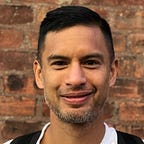Is it possible to read too much?
Deconstructing the different “types” of reading
The “firstest” of all first world problems is being anxious about having too much to read. The most audacious humblebrag has got to be: My voracious curiosity is sooooo stressful. (And it’s not lost upon me that there’s traces — or gobs — of this in all things Rad.) This tragic affliction is exponentially exacerbated by the digitization of the universe. If you think your Instapaper or podcast queue is unmanageable today, just wait until you have unread VR messages to respond to.
If I just read ‘one more thing’
But this feeling goes away, right? One more promotion, one exit, once I hit the number. Personally, I pine for the days when I could go to bed content without being stressed about the content I didn’t read.
Thankfully I’m not alone — a stack of unread Economists can send others into a existential crisis. I recently interviewed Scott Norton on the Rad Awakenings podcast. Scott’s a bicycle-riding Millennial with a dope mustache, who co-founded a ketchup company and sold it to Unilever eight years later. He’ll never say it, so I will — he crushed it. Yet his master is a pile of Economists. And it robs his wife and son of his most precious gift to them: his presence.
Your nemesis: a stack of economists
During our conversation, we walked through the triggering elements of this venerable publication. For starters, the Economist is full of really smart people doing really smart people stuff. So you can learn about this stuff. Then, if you’re a “connector,” (i.e. good networker) there’s a chance you could help these entrepreneurs. And with some capital, you may be able to invest. And when it’s said and done (under the hefty assumption that they succeed) you’re able to say “Oh wow, I had a hand in that.” That sounds pretty innocuous, but it felt like there was more behind this. And indeed there was. Scott adds:
I don’t fear death literally, but I do exhibit the symptoms of someone who fears death. I want to create babies — versions of myself that live beyond me. Legacy.
Should reading be blissful?
The irony that an unread stack of Economists somehow prompts an existential meltdown made us both chuckle. Yet I kept noticing versions of this conversation amongst really successful individuals. Patrick Collison, the co-founder of the unicorn Stripe discussed his stressful relationship with reading on Farnam Street (emphasis mine)::
With reading, I just feel stressed out by [the fact that so many things feel] important, [they’re] obviously important, and I don’t know it. And so, shit, I better get to work. When I’m reading, I’m not in this blissful place. I enjoy it perfectly fine, but I think there are extremely important things that I really should know and I don’t, and that feels problematic.
You could extend the reading anxiety to podcasts and YouTube videos. I’ve long shared my former addiction to chipmunk setting (aka 2.5x speed). Here’s a Twitter exchange I had with Lux Capital VC Josh Wolfe (who IMHO is one of the most thoughtful people on Twitter):
I could totally relate to Josh’s info anxiety and question if it’s something I’d ever be able to be at peace with. Here’s Josh’s candid response:
Where does this urge come from?
I miss the days when the most risqué part of reading was hiding under the covers immersed in a fantasy book with a flashlight. How did this activity morph into this competition of consuming and synthesizing all of the world’s ideas? It could be that globalization has raised the collective stakes for knowledge workers. I can’t speak for the others in this post, but for me it’s more — a bizarre cocktail of insecurity around identity, achievement and success.
It’s important to distinguish between different types of reading. Reading for information. Reading for leisure. (Reading for virtue signaling.) Ideally the intersection between the first two is large. Presumably we bounce between the two spheres based on our life’s circumstances and aspirations.
Should your reading strategy be adaptable?
And for me, every couple months these ratios get thrown out of whack. In fact, I had one of those moments two months ago right after I shared my notetaking process and Eugene Wei’s approach to rotating chapters on his Kindle. Immediately after, I went on a tear — I think I read four books in two weeks, meticulously annotating them digitally. Many of the ideas from those books percolated into these posts. But here’s the catch, something triggered this compulsive behavior. I can’t specifically pinpoint it, but it might have been a dip in subscribers or a tepid response to something I wrote. Because it was motivated by these subconscious forces I flamed out spectacularly. In fact, I’m still feeling this hangover — I haven’t read a book in months.
So next time you pick up that book. Ask yourself: why this book? Look around you to see if someone you care about is clamoring for your presence. And remember that reading can be a blissful experience.
Hi, I'm Khe Hy and this is from RadReads, my weekly newsletter. Join 15,000 entrepreneurs, creators, and investors by subscribing here. We cover productivity, learning, and self-exploration and all our stories are at Rad.Family.